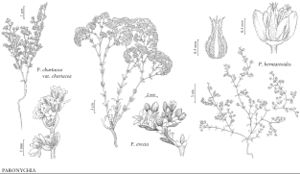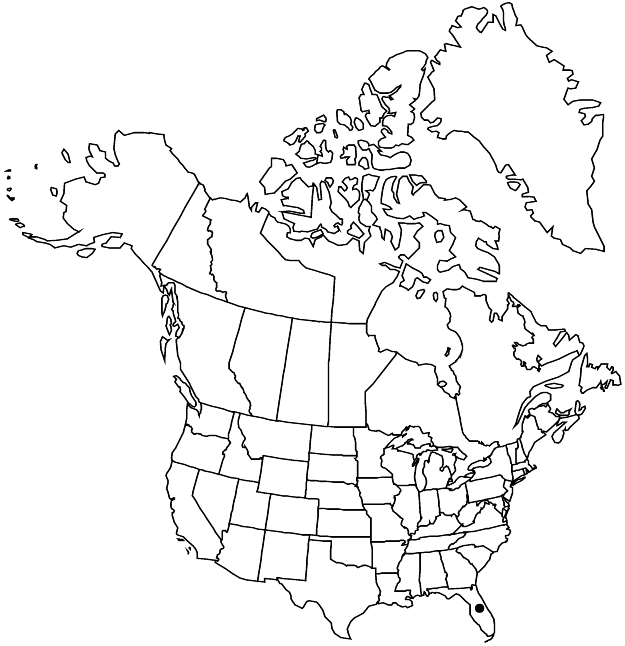Difference between revisions of "Paronychia chartacea var. chartacea"
Treatment appears in FNA Volume 5. Treatment on page 35.
FNA>Volume Importer |
imported>Volume Importer |
||
| Line 43: | Line 43: | ||
|publication year= | |publication year= | ||
|special status= | |special status= | ||
| − | |source xml=https:// | + | |source xml=https://bitbucket.org/aafc-mbb/fna-data-curation/src/2e0870ddd59836b60bcf96646a41e87ea5a5943a/coarse_grained_fna_xml/V5/V5_59.xml |
|subfamily=Caryophyllaceae subfam. Paronychioideae | |subfamily=Caryophyllaceae subfam. Paronychioideae | ||
|genus=Paronychia | |genus=Paronychia | ||
Latest revision as of 22:12, 5 November 2020
Plants annual or short-lived perennial; caudex (stem base) (1–)1.5–3.5(–4.2) mm. Stems without purple epidermal inclusions. Leaf blades 0.5–1.5 mm wide. Flower clusters 3–20 mm wide.
Phenology: Flowering year-round (mainly Aug–Mar).
Habitat: Sandhills, pine/oak woodland, open scrub
Elevation: 30-50 m
Discussion
Of conservation concern.
The diminutive var. chartacea is threatened by habitat destruction via both housing developments and citrus grove expansion in central Florida. R. Kral (1983) suggested that it is an early successional species in sand scrub areas since it thrives on bare sands but disappears as taller herbs become established.
Selected References
None.
Lower Taxa
None.

